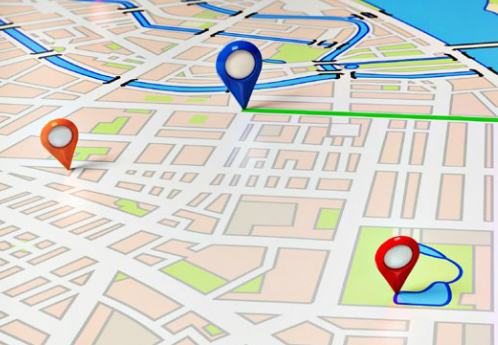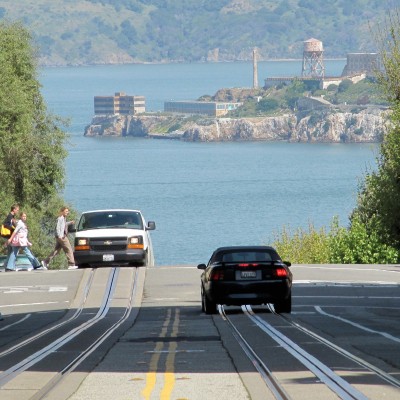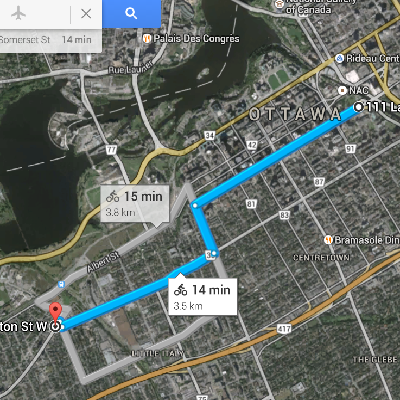Canada's Cities Need a Digital Roadmap
on

Most Canadians interact with the local level of government more than any other, and increasingly this is being done electronically
Defining a Digital Roadmap
A roadmap is a common planning tool to help both visualize and achieve a particular goal. It's useful to build consensus around any multi-stakeholder process. Projects often stall if they get caught up in the details, because there is no strategic approach to define priorities that everyone understands. Technology plays a critical role in most municipalities that goes well beyond infrastructure.
- Yes, many of us would be keen if there was more public wireless in urban areas, but that is simply an aspect of implementing a goal of citizen access.
- Yes, Open Data is exciting and provides some great opportunities to improve urban living, but this is just a part of principal of government transparency.
- Yes, we want electronic services to be accessible to everyone, but it is important to see plans for how to make this very difficult task a reality.
In 2009 the City of Ottawa had a 5 year Technology Roadmap that was a good first step to defining principles, drivers & key initiatives. In 2014, it's unclear that as a citizen if there was any evaluation of the implementation. In 2012 & 2013 the city started producing a living document (renamed to the Business Technology Plan from the Technology Roadmap). The name of the document doesn't matter, but the focus does. The planning process should be much broader than procurement and should have a prominent place within the City's Strategic Plan. Any effective technology plan should also involve continuous integration and regular evaluations. Technology is becoming the primary way that citizens engage with government and it should be treated that way.
Key Components
I do think it is worth striving to leverage the key areas used by others. Columbia University did a great Digital Roadmap of the Government of the City of Buenos Aires and came up with the following structure: Access; E-Government; Open Government; Citizen Engagement; Education; and Industry. The City of Buenos Aires has even created a Ministry of Modernization (MoM) that was tasked with "creating simplified, efficient, and transparent processes that leverage new technologies to better connect with its citizens and improve public services."
Access - Ensuring that citizens are able to connect to the Internet to access government services. This could include public WiFi, but really should be looking at improving municipal broadband by working with existing fiber providers. We also should be looking to promote technology adoption in low income neighborhoods, provide support for the elderly to use the technology and also foster other social-political goals like getting more involvement in elections. It shouldn't need to be stated that information from governments should be accessible to all citizens and also to city staff.
E-Government - We are always going to need to have governments strive to have more efficient & better delivery of public services. Electronically this means better websites, better support for mobile devices, more interactive processes. This will require greater collaboration and training for government employees. We need to have a government that protects our privacy as citizens and puts resources into seeing that confidential information is properly secured.
Open Government - We need greater government transparency and efficiency on all levels. Publishing open data, using open-source software and supporting open standards are a big part of this. With a strategic approach to implementing these new approaches governments can save money while improving services to citizens. This all requires a much different understanding of government's role, placing it as an actor within a community, rather than just a consumer/producer of technology.
Citizen Engagement - There is an opportunity to rethink how citizens connect with government that needs to be explored. Social media is one obvious place, but digital platforms be used for a wide range of issues including participatory budgeting. Citizens can be agents in improving the city that they live in, with support from the government. Yes, there is a digital component to municipal elections, but democracy is much bigger than getting citizens to cast a ballot.
Education - We need a digital literate population to reclaim Ottawa's title as Silicon Valley North. Working with the formal school system is important as is fostering support for non-profits like Ladies Learning Code, Citizens Academy and Artengine. All citizens should be encouraged to look at being participants in a maker culture. Ottawa is also rich with educational institutions like Carleton, Ottawa University & Algonquin, we can engage with students to help them make this their home.
Industry - Obviously, when there is a dominant industry in any community, it needs special consideration in any municipal plan. In Ottawa the federal government and the businesses that support them need to be involved. Strategic cooperation with these organizations is critical, because there are in many places common needs. We also want to investment in the creative Start-Ups in the city and see this as a destination for smart venture capital.
Cities Leading the Way
Buenos Aires, Open Source & Drupal - The City of Buenos Aires seems to be leading the way to developing a modern digital city. With political support from the mayor, the eGovernment Office, Open Government Office & New Media Office collaborate together to engage with citizens & public servants to change the culture and expectations of both. Leveraging open-source tools like Drupal, Buenos Aires is producing modern web based tools that that are designed to serve the needs of the user. Buenos Aires is playing a leadership role by contributing back to the digital communities they leverage.
Smart Chicago Collaborative - Imagine a civic organization devoted to improving the lives of people of Ottawa through effective use of technology. They break it out nicely, but I think it must make a huge impact to have an independent, government funded agency working to make "the smallest amount of software [be] useful to the largest amount of people in connecting residents to their government, their institutions, and each other." Like other innovators, they are leveraging open-source software. With thinking like this, it's not surprising that Chicago isn't known as the City that Fun Forgot!
Mayor’s Office of New Urban Mechanics - In some ways similar to the above example, teams of New Urban Mechanics are working in Boston & Philadelphia to develop pilots to seeking to radically improve the quality of City services. Imagine having a small team actively building partnerships between constituents, academics, entrepreneurs, non-profits and City staff. Incubators like this allows government to learn iteratively from both success & failure. The New Urban Mechanics also leverage open source and code communities like GitHub.
London's FixMyStreet - A great open-source platform for cities to report, view & discuss local problems! The vision is to create a direct link (encouraging responses) between citizens and the government agencies responsible for resolving each problem. mySociety is a UK non-profit with a number of projects that makes websites and other tools to empower citizens. Cities around the world are using & contributing back to this platform to see that it continues to affordably help enhance the needs of it's citizens.
 Action Ideas
Action Ideas
Talk to your candidates, most probably will not be all that familiar with this issue. Often technology discussions are relegated to geeks, where as it really is something that affects all of us. What is their definition of a "Smart City"?
Dare to imagine what your relationship with your municipal government could be like if there was a means to engage more effectively.
Map graphic via Hackable Cities A Toolkit for re-imagining Your Neighborhood.
Share this article
About The Author
Mike Gifford is the founder of OpenConcept Consulting Inc, which he started in 1999. Since then, he has been particularly active in developing and extending open source content management systems to allow people to get closer to their content. Before starting OpenConcept, Mike had worked for a number of national NGOs including Oxfam Canada and Friends of the Earth.




Add new comment